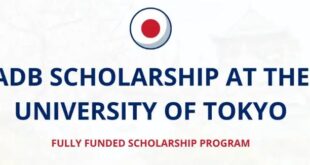 Education has many definitions and interpretations. In this article, education refers to the process of acquiring knowledge and skills necessary to meet the needs of the job market, even though this may not necessarily be the ultimate goal of education. The process evolves through a teacher student interaction involving the transference of knowledge. In the conventional system (mainly British), knowledge enhancement occurs in stages going from primary to secondary schooling followed by post-secondary higher education at a College or University. The system ensures that by the end of secondary schooling (equivalent to the A-level) the student attains a basic literacy level. That is to say the student would have gained the ability to read and write as well as analyze and understand a piece of information. Indeed this is an achievement that merits celebration, but it should not be treated in any way as the end of the learning process as many students tend to do. It is rather the beginning of the career building process.
Education has many definitions and interpretations. In this article, education refers to the process of acquiring knowledge and skills necessary to meet the needs of the job market, even though this may not necessarily be the ultimate goal of education. The process evolves through a teacher student interaction involving the transference of knowledge. In the conventional system (mainly British), knowledge enhancement occurs in stages going from primary to secondary schooling followed by post-secondary higher education at a College or University. The system ensures that by the end of secondary schooling (equivalent to the A-level) the student attains a basic literacy level. That is to say the student would have gained the ability to read and write as well as analyze and understand a piece of information. Indeed this is an achievement that merits celebration, but it should not be treated in any way as the end of the learning process as many students tend to do. It is rather the beginning of the career building process.
Post-secondary education is a must for those who seek to develop a professional career in a chosen field of work. This part of higher education may require a 3- to 5- year course of advanced studies at a recognized College or University leading up to a Diploma or a Bachelor’s degree or equivalent. These few academic years are dedicated to career oriented curriculums. Emphasis will be laid on the theory and practice of relevant disciplines backed up by laboratory work and field assignments, and other curriculum based programs. The system offers numerous initiatives which the student may take advantage of to constantly expand the knowledge base and enrich skills.
Participation in programs that offer hands on experience adds value to an individual’s competence. These may come for example, in the form of internships, research assistantantships, community services and volunteering, vacation programs to name a few. It must be emphasized at this point that higher education is not just about pure academic pursuits. It is also to do with personal development and creating a sense of social consciousness. Inter active programs present openings to connect with team mates, colleagues and peers, to establish contacts with potential employers and to get familiar with real life work situations. These relationships and experiences help build self-confidence in the individual, and more importantly self-esteem so important for success academically and professionally.
There are other specialized skills that the student may acquire during the course of higher studies which could prove useful in career advancement. These include communication and languages, team work, the ability to get along with others, computer literacy, problem solving capability, multi-tasking, and mathematical skills (for example statistics). They may not form part of the standard curriculums; nevertheless they certainly add value to the larger picture of what higher education should represent.
Today’s job market is a competitive place. Employers are becoming more selective and demanding. They are constantly hunting for talent that would give them value for money. This has necessitated potential job seekers into advanced post graduate studies leading to a Master’s degree (MA, MSc) or even a Doctoral degree (PhD), a trend seen especially in the arts, science and engineering fields. In business and finance the MBA is fast gaining popularity, so much so some employers are using it as a benchmark to short list candidates for job interviews. Post graduate degrees may offer a competitive edge in certain specialized job sectors and even accelerate career progression in the workplace. It must be emphasized though that a well-earned Bachelor’s degree or equivalent is still the basic requirement for post graduate education. It is in the employer’s interest also to have an educated workforce. This is where thinking skills, innovation, and creativity, contribute to new products and services. Moreover, education though often forgotten is a key contributor to labor productivity and performance.
A person’s knowledge and skills are often considered as human capital. In this sense higher education must be regarded as an investment in the individual that pays off in the end. The benefits may come in many ways. To start with it enhances the individual’s employability. That is, it increases the capability to gain employment, helps in career development and maintain the job. Workers with a high education are known to have greater mobility, horizontal and vertical, within the workplace and have more flexibility to migrate from one employer to another. These are usually voluntary moves the worker may undertake to improve the individual’s job status. Company mergers and restructuring can lead to the dismissal of workers. In such situations it has been found that workers having higher education tend to have a higher survival rate during job layoffs. Workers must be prepared to face any eventuality in the workplace that may lead to job losses. In fact no more can a person enter a company and expect to retire comfortably from the same place.
The data (1) given below show the unemployment rates in the USA for workers (25 years and over) by qualification for the year 2011.
PhD – 2.5%, MSc – 3.6%, BSc – 4.9%, High School Diploma – 9.4%
(1) – Bureau of labor Statistics, US Department of Labor.
Evidently, higher education seems to pay off in lower unemployment rates.
All jobs carry a remuneration or salary which can be looked upon as a compensation the employer pays in recognition of the worker’s knowledge and skills and the contribution in the company. As expected, data in the literature suggest a close relationship between the education level and the earning capacity of a worker. To give an example, in the USA the median weekly salary (US$) by education level of full time workers 25 years and over in the year 2011 were as follows (1).
PhD – 1,351, MSc – 1,263, BSc – 1,053, High School Diploma – 638
A similar trend can be found in the lifetime earnings of employees, again in the USA, from 25 to 64 years, working full time for 40 years as shown below (2); the earnings are expressed in US$ millions.
PhD – 3.3, MSc – 2.7, BSc – 2.3, High School Diploma – 1.3
(2) Anthony P. Came vale et al, The College Pays, Georgetown University, 2009
These numbers confirm the higher earning power of workers with higher education.
It is said that there is no such thing as a free lunch. This is true in education as well. Post-secondary education is expensive. To give some idea of the cost of high education, the table below shows a breakdown of expenses (C$) involved in pursuing either a College or University degree in two selected institutions in Canada (3).
Institute | Tuition fees per year (C$) | Residence and meals (C$) | Books (C$) |
University of Toronto Ontario | Arts and Science, 5,500 App. Science and Engineering, 10,900 | 6,500 (no meals) | 1,000+ |
Seneca College Ontario | Business admin. and Financial planning, 3,300 Engineering (no information) | ` 8,500+ | No information |
(3) The Toronto Star, Ontario, Feb 23, 2012
For foreign students the tuition fees may reach twice or even three times the values quoted in the table. The tuition fees alone for local students following a four year university degree could be as much as C$ 20,000 to 40,000. However, the cost impact can be reduced somewhat through scholarships and bursaries or by obtaining a student loan from the provincial government. Today, some 60% of Canadian students pay for their post-secondary studies through student loans. The problem with the system is that the student incurs a debt of about C$ 27,000 on average at the end of the course (Refer, The Toronto Star, Ontario, November, 2012). The average repayment period for the loan is 15 years with interest. The loan can therefore easily turn into a real liability to the student especially in situations where the job market is slim and uncertain.
There are many countries in the world where post-secondary education is free thereby relieving the student of financial burdens. This system seems to be a more attractive option as it would make higher education more affordable and within reach of a larger population. Of course, in a socialized system of free education it is the taxpayer who eventually foots the bill.
This is the era of Information, knowledge and reasoning. Knowledge is growing at a fast rate and there are no signs that this pace will slow down anytime soon. Education must therefore be treated as a continuing process running through the entire working life of the individual. In fact, today one is expected to have a mind set of being a lifelong learner, gleaning information and knowledge from every possible source.
Although the terms job and career are used freely there is a distinction. A job is an activity for which the worker gets paid for the service rendered. However, a career means much more, it is both a journey and a destination involving one’s talents, skills, and knowledge. For example, a young person can be doing several jobs to pay his way through medical school. But his career choice is to become a qualified physician. So in the choice of one’s career and higher education it is important that the decision one makes is aligned with the individual’s values, and goals. Career selection requires a lot of thought and an assessment of socio-economic-political and ethical issues and trends. This will avoid potential pitfalls in the future. Also it is necessary to ensure at all times that professional conduct does not conflict with the individual’s ethical principles.
There are many skeptics who argue whether higher education is really necessary to meet one’s objectives in life. There are of course many people who have done well in life and achieved their own personal goals without resorting to higher studies. Among them there are even well known entrepreneur billionaires like Bill Gates, Steve Jobs, John D. Rockefeller and Howard Hughes. But these constitute only a minority and must be treated as exceptions. All said and done, higher education still continues to be a trustworthy companion that one can count on any time.
Rajindra C. Ratnapuli, CEng
Toronto, 11 Nov. 2012
Post Disclaimer | Support Us
Support Us
The sailanmuslim.com web site entirely supported by individual donors and well wishers. If you regularly visit this site and wish to show your appreciation, or if you wish to see further development of sailanmuslim.com, please donate us
IMPORTANT : All content hosted on sailanmuslim.com is solely for non-commercial purposes and with the permission of original copyright holders. Any other use of the hosted content, such as for financial gain, requires express approval from the copyright owners.
 Sri lanka Muslims Web Portal Sri Lanka Muslims News Center
Sri lanka Muslims Web Portal Sri Lanka Muslims News Center
 Donate
Donate


